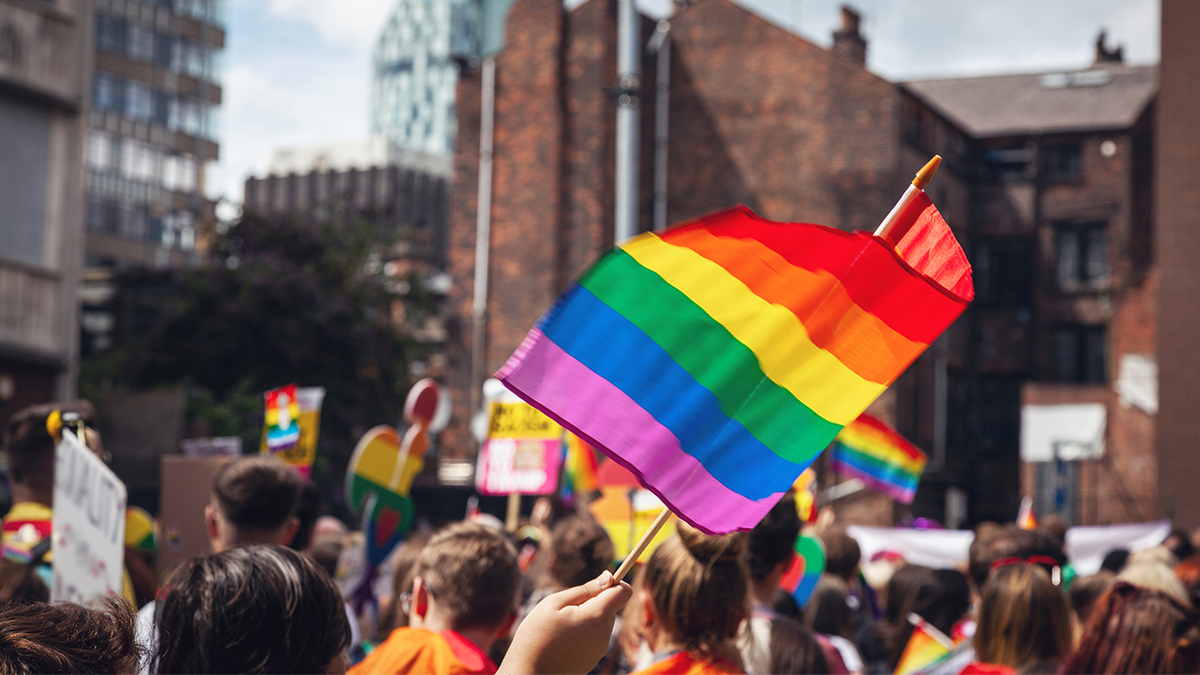Control the chaos and unleash your team's potential with Extensis Connect / Learn More
Control the chaos and unleash your team's potential with Extensis Connect / Learn More

Extensis is an international company, but our corporate headquarters are in Portland, Oregon. Usually, when we talk about cultural archives here at Extensis, we’re talking about museums, libraries, and organizations around the world with tremendous resources and funding. We wanted to take a moment to reflect on some of the wonderful, impactful archival work that is being done in our own backyard by the Gay and Lesbian Archives of the Pacific Northwest (GLAPN).
GLAPN was started in 1994, inspired by historian Allan Bérubé’s work around WWII gay and lesbian stories and issues. GLAPN President Robin Will tells me that in the beginning, a lot of GLAPN’s efforts were literally pulling scrapbooks and diaries out of the trash. With a strong stigma around homosexuality, many families felt ashamed of having a gay family member and wanted to throw away all traces of their lifestyles. As GLAPN’s president Robin Will explained to me, “People don’t always want to acknowledge that they have gay relatives. So, when gay people would pass away, any paper trail would just get thrown away — scrapbooks, photo albums, letters. People in the community were looking around, realizing that we were losing these stories! So, GLAPN was formed by the very dynamic Tom Cook and Jeanine Wittcke in 1994.” Over the years, the organization’s work has evolved significantly.
GLAPN has moved far beyond scavenging. They now work with Portland State University’s Capstone program to procure around 20 oral histories per academic term (approximately 40 per calendar year) from elder members of the LGBTQIA+ community. Students interview individuals, then transcribe and upload the interviews. GLAPN works with the Oregon Historical Society to make these interviews available to the public. This project has allowed students to capture history in retrospect. Instead of focusing on a single protest, or businesses owned by members of the LGBTQIA+ community, interviewees’ stories span decades of life in the Pacific Northwest.
Activist George T. Nicola also works with primary sources to reconstruct and write actual LGBTQIA+ history of the Pacific Northwest, which is publicly available on GLAPN’s website. In order to focus on history being made right now, the organization also gets the community engaged and involved with their Queer Heroes project each year. People can nominate a Queer Hero, and once the results are tallied up, 30 heroes are chosen — one for each day of Pride Month in June.
Most of GLAPN’s physical objects and archives are housed with the Oregon Historical Society, but I was particularly curious to learn how they manage their digital assets. Smaller, leaner organizations like GLAPN might not have the space for their tangible assets that a museum or library would, and they also are unlikely to have the same access to digital storage and sharing. The organization is currently working to add relevant metadata to all photos in their collection, which will add context and make it much easier to search. While the Oregon Historical Society is temporarily under construction, board members have been collecting newly acquired documents and assets in their homes. The need for a dedicated office space has become crystal clear – especially the need for a dedicated digitization space. By being able to digitize quickly and effectively, GLAPN will be able to rapidly parcel out and distribute projects to volunteers.
It's easy to think of history as a pile of dusty papers and textbooks, but we must never fall into that trap. History is always in the process of being uncovered, revised, and rewritten to include more voices. Even within GLAPN’s efforts, Will explained to me that they are pushing to attain more intersectional stories from their community — to weave a more complete and inclusive history of the Pacific Northwest. “The Black Community in Portland has a very rich history, but most of it is oral. It’s not written down.” Rather than just trying to get these stories onto paper, GLAPN continues to pursue recorded interviews that can reveal far more than transcription — essentially preserving the storytelling presentation of these stories.
Unfortunately, over the past few months many events have been canceled due to public health concerns, including PRIDE events. It can be challenging to celebrate PRIDE Month in 2020, and it can also be hard for organizations to meet their fundraising goals without events. If you’re interested in helping GLAPN make history, you can donate on their homepage.